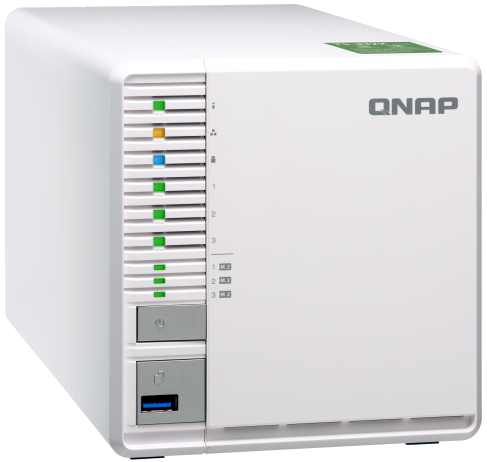
Read on SmallNetBuilder
Last edited:

Those numbers look way too high. Yes, test method matters a LOT.
What do you get with a large Windows sequential file copy?
Well, sadly that's what happens, as gear gets faster and faster, so if you don't keep up, you fall behind without even noticing.Well, could be the ol' testbed is too slow. I am using a RAM-based drive to host the file.
QNAP's TS-332X is a 10GbE NAS that trades higher flexibility for lower price.
Well, sadly that's what happens, as gear gets faster and faster, so if you don't keep up, you fall behind without even noticing.
Admittedly my hardware is all pretty top notch without going crazy. My main system is a Ryzen 1700 @ 4.85GHz with 16GB of RAM and a now "old" Plextor M8Peg SSD. Not cutting edge, but not too far off. To be honest, the NVMe drive doesn't make a huge difference in day to day tasks though.
On the other hand, I'm quite pleased I built my own NAS, as it's working really well so far and it's much more up to date software wise than the retail brands. Obviously it lacks some of the functionality on offer from those companies, but most of what's on offer, is of little to no use for me. I've also had to learn a lot more Linux skills to deal with this thing, which is both a plus and minus.
We use essential cookies to make this site work, and optional cookies to enhance your experience.
